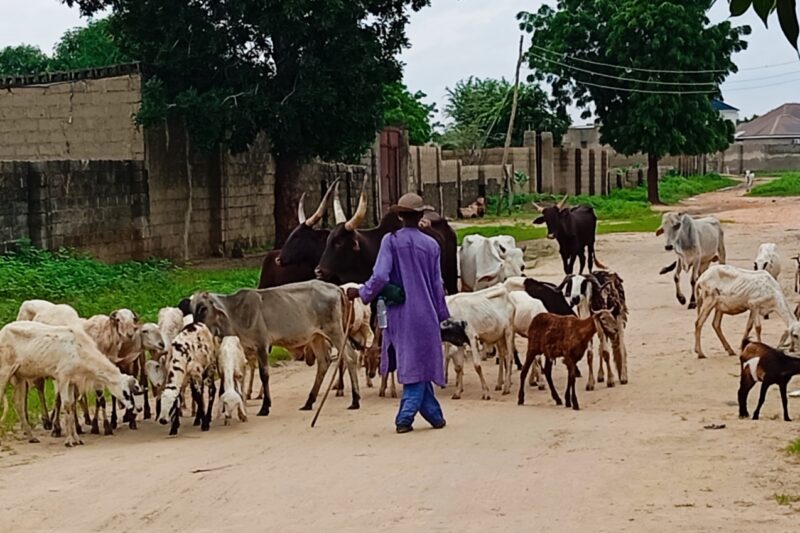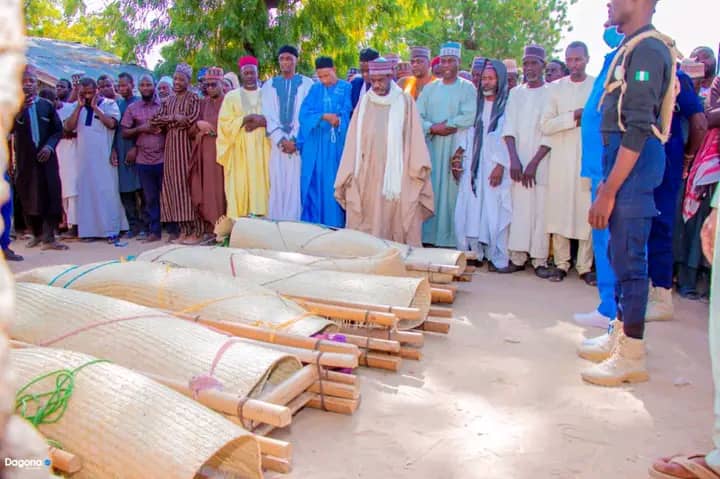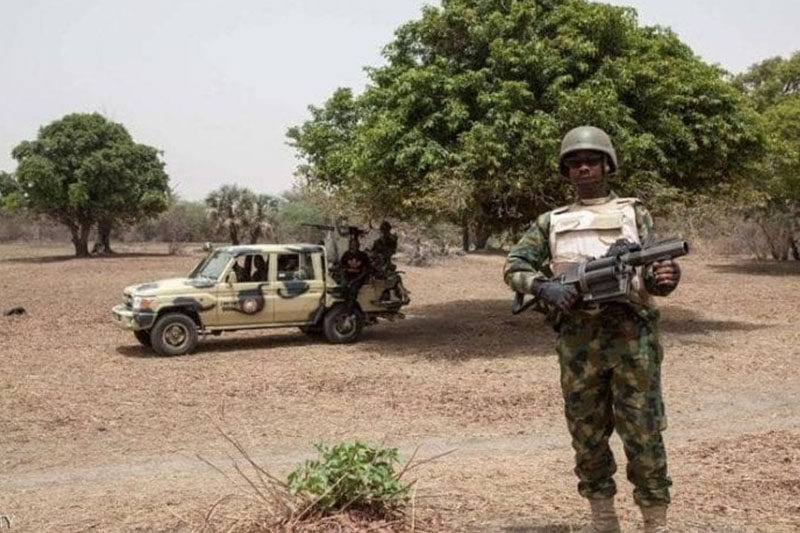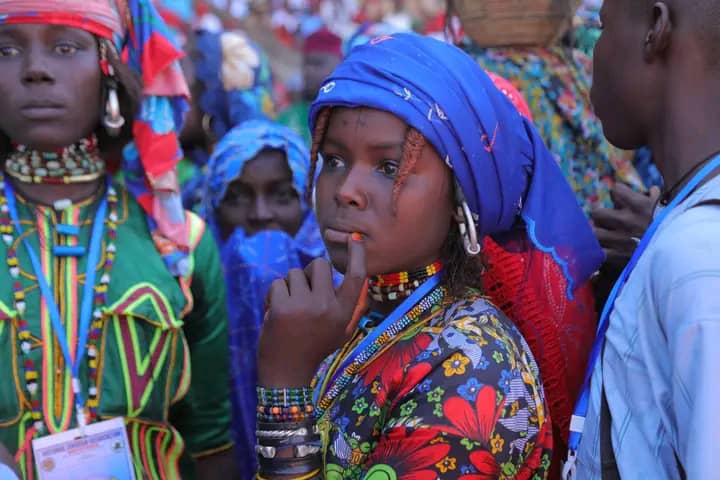Borno State government assures farmers that it is ‘on top of the situation’ and doing whatever it takes to peacefully resolve the longstanding conflict between farmers and herders.
The Borno State government has warned citizens who are concerned about possible farmer-herder clashes not to take the law into their own hands – and not to panic.
Tijjani Goni Modu, a senior special adviser to the government on livestock matters, said the committee that was convened to address the clashes was working with representatives of the herders – mostly from the Fulani and Shuwa Arab tribes – and those of farmers from agrarian communities across the state to pave the way forward for dialogue and peaceful resolution of the longstanding conflict between the two.
“Community leaders of the herders have already warned their people not to graze and destroy farmlands, so local farmers should not panic. The government is on top of the situation.”
Modu said the state had set up sub-committees in the Jere and Kukawa local government areas, as well as in the Maiduguri Metropolis and other districts, to address the root causes of the farmer-herder conflicts and disputes.
“The committee has advised the Borno State government on three aspects: first, authorities and stakeholders of all 27 local government areas must fast-track the compilation of their respective reports with regard to farmer-herder conflicts in their respective areas.
“Second, the state government has been urged to hold a strategic meeting with government officials and stakeholders from the neighbouring countries of Chad, Cameroon and Niger, as well as the Benin Republic, to chart the way forward because most of herders come from those countries.
“Third, the state government must draft a policy document clearly stating that herders must inform traditional rulers and stakeholders before they enter a particular agrarian community to avoid clashes and disputes.
“I urge farmers and herders to exercise patience and to avoid clashes. The Borno State government is working tirelessly to come up with measures to address the root causes of the conflict and to ensure the protection of lives and property.”
Governor Babagana Umara Zulum convened the committee in January this year and it was inaugurated in February.
He said the committee’s mandate was to determine the causes of conflicts between farmers and herders and to recommend measures to prevent future violent occurrences.
The committee would identify and document the grazing reserves and their current status.
It was also investigating the re-establishment of defunct cattle routes and would identify grazing reserves that had not been adequately used.
Zulum urged farmers across the state to be law-abiding and “to shun all acts that could lead to violence”.
Violent conflict between nomadic herders and mostly agrarian communities have occurred for years – usually during the post-planting and harvest seasons – as both groups clash over the use of land and resources.
The clashes have in some cases been deadly. Amnesty International estimated that between 2016 and 2018, there were more than 3,600 deaths recorded in clashes and escalating violence between nomadic herders and agrarian communities.
Climate change had compelled herders – mostly from the Fulani ethnic group – to seek alternative places to feed their cattle.
Increasing desertification and deforestation have contributed significantly to the herders’ migration and, by implication, the continual violent clashes between farmers and herders.
Farmers across the state, who are expecting a bumper harvest this year, have expressed deep concerns and fear that the herders and their cattle could destroy their crops before the harvesting period.
They are pleading with the government to take decisive action “before it is too late”.
Bana Batulmibe, a farmer in Lawararam community of Maiduguri, told RNI that he had large farmlands in Gwom village in the Mafa Local Government Area.
He said he had planted crops and they had already started ripening.
“The thought that herders and their cattle could come at any time to graze on my lands scares me.
“Farmers are expecting a bumper harvest this year and I am terrified that I will lose my crops. Most years, the herders come on to farmlands in the dead of night. No one can stop them. This is exactly what happened to me last year. Most of my crops were eaten and destroyed by the herders’ cattle.
“Right now, our crops have already started ripening. We are waiting patiently for harvesting to start. But our greatest fear is the herders. If they come, we could lose everything.
“If the government does not take the necessary action to stop the herders, it will affect food production for the whole country, not only Borno State. People are starving and in the present harsh economic climate, a bumper harvest will help to bring down the cost of food. But if our crops are destroyed, everyone will suffer even more than they are at present.”
Abdulkadir Abdari, a farmer from the Molai community of Maiduguri, told RNI that the herders usually came during the harvesting period when all crops were ripe.
“The agrarian communities that are mostly affected by the herders include Dalwa town in the Konduga Local Government Area and those in the Shehuri and Umarari villages of Molai town.
“Right now, our beans, maize, groundnuts and other crops are starting to ripen. We are expecting a good harvest but we are terrified that herders will come and destroy the crops if the government does not do something about it.”
Bor Modu (not his real name), a farmer from Gajiram town in the Nganzai Local Government Area, told RNI that last year half of his crops were eaten and destroyed by herders’ cattle.
“Most of the farmers in the Nganzai district are afraid that the herders are on their way. The last we heard the herders were around Damasak town, the headquarters of the Mobbar Local Government Area in the northern part of Borno State.
“We are begging the government to intervene before they come here. Urgent intervention is needed to ensure our crops and farmlands are protected. It will be a disaster if our crops are destroyed by the herders’ cattle.”
Babagana Bulama, a farmer from Jakana town in the Konduga Local Government Area, said so far, herders had not been seen in the district.
“Before the rainy season started when crops were being planted, we were told that the herders were moving into the Mafa Local Government Area. So far, we haven’t seen them here. We are praying that our crops will be safe; they are ripening and harvesting time is drawing near.”
SHETTIMA LAWAN MONGUNO









